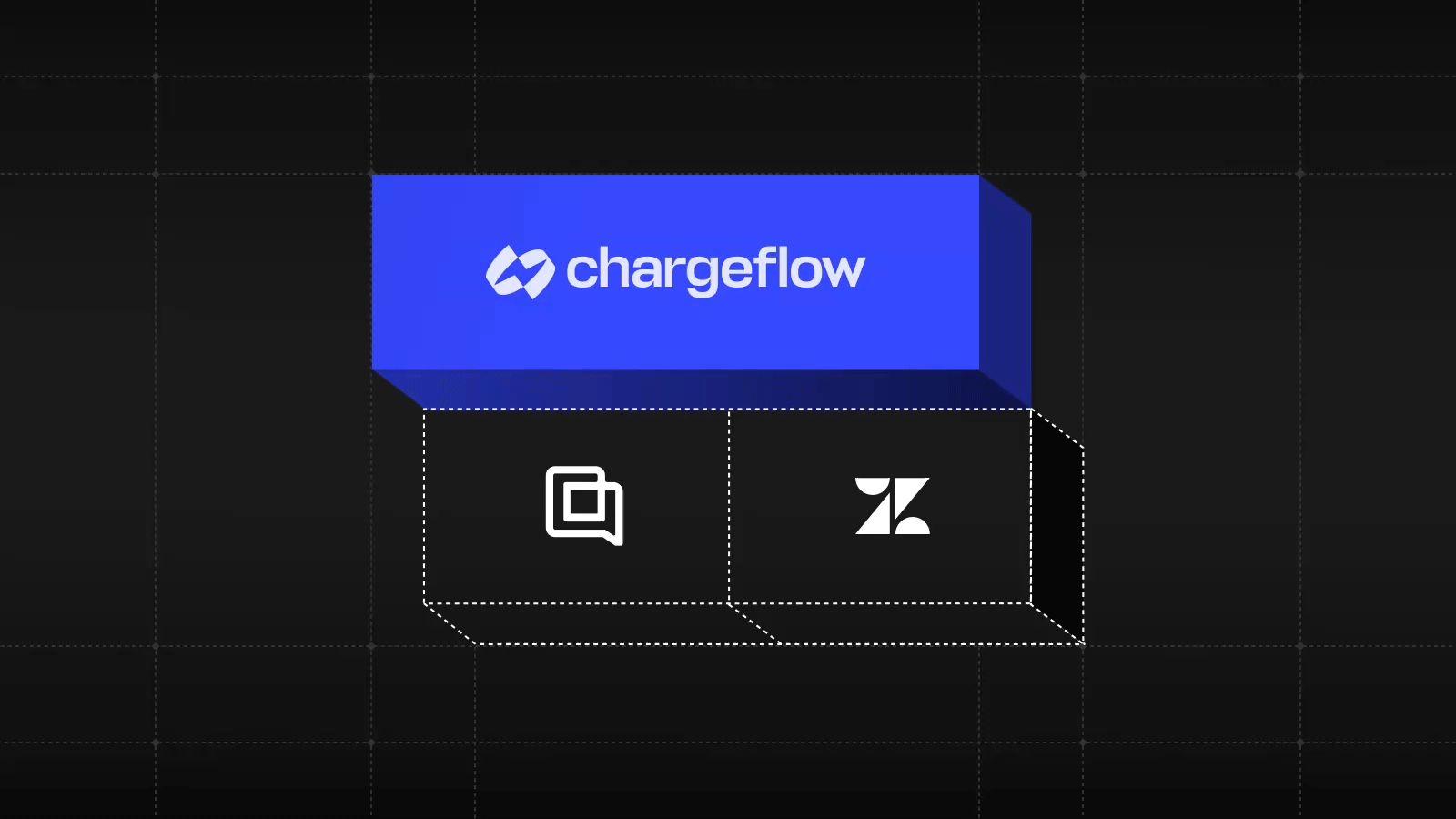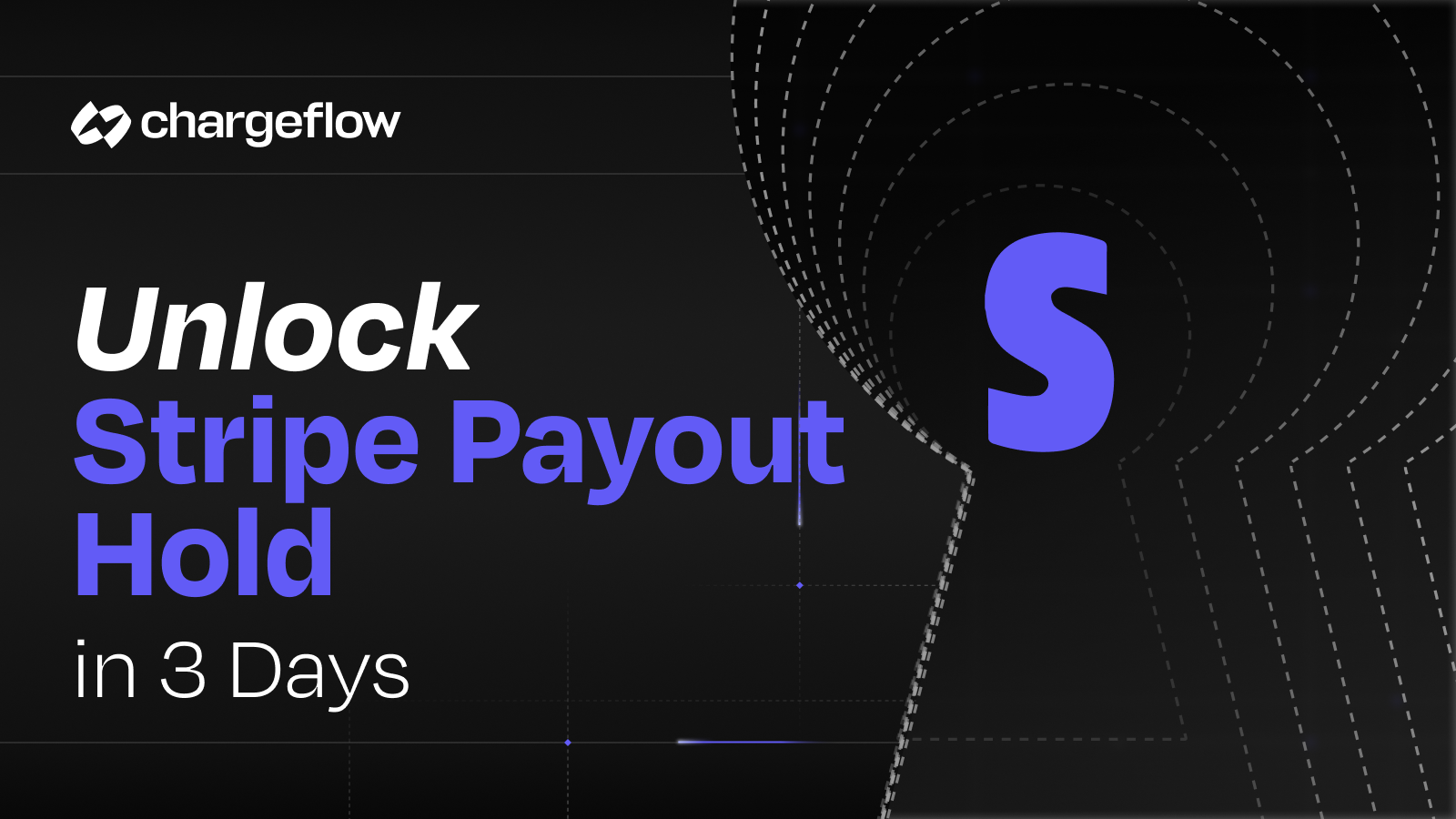PayPal Chargeback Fraud Mitigation Guide for Merchants

Chargebacks?
No longer your problem.
Recover 4x more chargebacks and prevent up to 90% of incoming ones, powered by AI and a global network of 15,000 merchants.
PayPal says businesses using their platform lose $4.5 million annually due to fraudulent online transactions. Learn how to win PayPal chargeback fraud.
TL;DR: PayPal chargeback fraud is a huge revenue drain. To avoid PayPal chargeback fraud, you must keep an eye out for con artists, double-check the buyer's order information before shipping, use data enrichment to your advantage, obtain delivery confirmation for high-ticket orders, and ignore spookie emails.
In the world of payments, PayPal is a family name.
The company reported a full-year Total Payment Volume of $1.25 trillion in 2021, growing 33% and 31% on an FXN basis; net revenues of $25.4 billion, growing 18% and 17% FXN.
Merchants love PayPal because of its plug-and-play payment processor processing style along with seller protection.
Yet, every eCommerce merchant knows that when you collect payments online, you are bound to have payment disputes sometimes ' which generally result in chargeback claims. Along with that we have seen scammers using various chargeback scams time to time. The reasons for PayPal chargebacks can be classified as follows:
Item Not Received: A cardholder claims they paid for an item but didn’t receive it.
Item Significantly Not As Described: A customer said they received an item that does not match what the seller advertised on their website or what they expected.
Transaction Unauthorized: A cardholder claims someone made a transaction without their (i.e., the cardholder’s) authorization.
As intimated above, when customers face any stated issues, they either open a dispute on PayPal or chargeback process through their credit card companies. Unfortunately, scammers now use PayPal fraudulent chargeback to get free money. PayPal says businesses that use their platform lose $4.5 million annually due to fraudulent online transactions and unauthorized transactions.
In that light, we share this proven PayPal chargeback fraud mitigation guide to help you seal any revenue leakage in your business and secure your online payments.
How does PayPal decide who wins a dispute?
Before answering that question, it'll be helpful to touch on the PayPal dispute resolution process. Here's how PayPal dispute process works:
First, the cardholder opens a dispute in the Resolution Center.
PayPal withholds the merchant's funds and sends the merchant a notification of the dispute that can be friendly fraud.
The merchant has the option to either accept or reject the case. But that must happen within a given response time limit of 10 days (otherwise, the debit card holder will win the case by default).
To respond, you have to:
- Log in to your PayPal account.
- Go to the Resolution Center.
- Click View under Action next to your case.
- Respond to the buyer, including any relevant information, and then click Post Message.
The standard process is first to contact the buyer and try to work things out without creating a customer dispute. If you succeed, you can ask them to withdraw the case. But if you cannot work things out, the cardholder can escalate the dispute to a claim, inviting PayPal into the mediation. The PayPal Dispute Resolution team will then try to form an accord for both parties. In case of a PayPal chargeback notice you have to provide significant evidence like shipping company details, proof of delivery and transaction records.
That said, PayPal decides who wins based on the compelling evidence you provided. Every case is different, and you must ensure that you have all relevant documentation like proof of shipment that legitimizes the disputed transaction. If you don't have enough compelling evidence, PayPal will rule in favor of the cardholder. Even if the claim is meritless. So valid proofs in the only viable option here.
But when speaking of PayPal chargeback fraud, it's essential to understand its chargeback monitoring program and take relevant preventative measures. We shall talk about that in detail in subsequent sections.
.jpeg)
6 PayPal chargeback fraud red flags you should know
Fraud PayPal chargeback complaints takes different forms, but they generally follow similar patterns. Below are some crucial red flags of PayPal chargeback fraud to bear in mind.
PayPal chargeback fraud red flag #1: Cardholder asks to change the shipping address after payment
There might be a good reason why someone would want to change their shipping address after payment. However, you should do your due diligence before granting such a request. Scammers use invalid delivery address tactics too that might seem like a correct address. To be safe, and depending on the dollar value of the transaction, you could ask the customer to cancel the order. And re-order with their preferred delivery address. Shipping to the wrong address makes you vulnerable if the cardholder files an "item not received" PayPal chargeback. PayPal seller protection does not cover shipment to addresses different from the one on the file.
You could send them this sample email:
Dear …
I am happy to send your order to a different address. However, you will have to cancel this order and re-order using your new address.
{include a guide on how to cancel}
After you’ve done that, you can effectively re-order using the correct address at any time. If you change your mind and want me to send the package to the original order address, you need not take further action.
Please note that if we don't hear back from you by {insert timeframe}, we will go ahead and ship the package as ordered.
I hope this helps.
Regards,
PayPal chargeback fraud red flag #2: Fake emails
Have you ever received an email supposedly sent by PayPal informing you that a buyer paid money into your account, and PayPal has placed a hold on the money and will only release it until you send a shipment tracking number?
Such forged emails are one key MO online shoplifters use to scam sellers that also ask for signature confirmation. The scammer intends to scare the merchant into shipping the order and sending the tracking number to reverse the payment hold. PayPal doesn’t usually hold funds like that.
Be aware that if you fall for such pranks and ship the order, that's game over. The fraudster will get a free meal, and you will be left holding the bag.
ALWAYS read between the lines and double-check to ensure any communication you're acting on comes from the right source. Experienced scammers create identical copies of standard PayPal sales notification emails; if you don't know how to spot the fib, you could fall for it. And being that the exchange didn't pass through PayPal's systems, you're on your own – PayPal can't help you in any way.

PayPal chargeback fraud red flag #3: Hacked PayPal account
Another crucial PayPal chargeback fraud red flag to look out for is a purchase from a hacked PayPal account. And when the valid account owner realizes someone else had hacked their account and made an unauthorized transaction, they file a chargeback.
The good news for this type of PayPal chargeback fraud is that if the transaction meets PayPal's preconditions for seller protection, PayPal can reimburse the merchant. Therefore, you must study the Seller Protection Program and ensure your sales meet all the stated requirements. We covered that topic in detail here.
PayPal chargeback fraud red flag #4: Phishing scams
Crooks often use targeted phishing common scams to defraud PayPal merchants which will lead you to fraudulent payment gateways.
These emails seem to originate from PayPal, stating that someone had transferred funds into the merchant's account. And the merchant must confirm the method of payment to make the funds available by clicking on a link or button.
Usually, the link redirects like donation links to the merchant to a fake PayPal website that'll request your credentials. They've got you if you eventually key in your email and password into the site. The fraudster will effectively own your account and log you out. They can withdraw your funds or use them to buy things online and do fraudulent transactions.
There are several forms of phishing scams. Some of them promise sellers substantial financial gains on lost inheritances or some windfalls if they could help with a small processing fee or transaction details. And such pranks end with zero profit for the victims. The fraudster usually walks away with whatever you send them.
There are simple actions you can take to avoid being a victim of such scams. First, examine the sender's address, not just their name. These scammers often use variations of legitimate addresses with some additions.
Second, DO NOT enter personal data like credit card number, email, or password into a webpage linked to you. To log into a website, visit the homepage and log in from there. Equally important, don't click on any link or download any attachment if an email seems unusual or suspicious.
You should also check the update list of fake social media sites, scam third-party sites, and other potential phishing sites that uses fake products and billing error to scam you. Do everything from being the victim of fraud and always payment protection methods.
PayPal chargeback fraud red flag #5: Overpayment scam
Fraudsters often commit PayPal chargeback fraud by making credit card payments to a seller's PayPal account above their purchase amount and then demand for bank reversal. They'll then contact the merchant, explain they overpaid, and ask for reimbursement of the balance by showing fake transaction receipts using abandoned payment processor.
And it seems harmless ' you should reimburse the buyer for an overpayment. But the danger comes when you've sent their overpayment amount. The thief will immediately file a dispute that the transaction was unauthorized. PayPal will grant the claim and award them the full original payment and deduct a dispute fee. Whether or not you've shipped the order, you still lose money because you've already sent the buyer the supposedly overpaid amount. Plus, you will incur a credit card chargeback fee as well.
The good news for you is that you can conveniently avoid such scams. The first strategy is to stop accepting direct card transactions through PayPal. If you wish to give buyers the convenience of account-to-account payment through PayPal, you can still stop overpayment scams by refunding the complete purchase with legit payment method.
And then ask the buyer to make another purchase with the actual amount. And make buyers use the checkout system when buying from your store. Also, look out for message scam and charity donation frauds.
PayPal chargeback fraud red flag #6: Fanthom PayPal accounts
Online criminals often impersonate a real business with a fake storefront and direct customers to pay to their PayPal accounts. The scammer does not intend to fulfill the order. And the disgruntled customers will then direct their anger and frustration to the business whose name they used to set up the fake storefront.
That devious tactics transcend PayPal chargeback fraud. For instance, Federal Trade Commission data indicated that Americans lost $145 million to fraud in 2020 related to Covid-19 relief programs.
The pattern is quite similar. These scammers create PayPal accounts and some Social Media pages claiming to be a notable charity devoted to helping people in need. They then use paid marketing or bot accounts to disseminate information by the fraudulent charity account soliciting donations.
And the scammers usually get away with their fraud because many people don't know it's a scam. They assume they're donating to a charity when they are actually funding someone's expensive lifestyle.

With that in the note, you can't be passive with fraud mitigation. There are simple things you can do to stop PayPal chargeback fraud from happening in the first place: for instance, that credit card issuer is a real person.
How to avoid PayPal chargeback fraud
You cannot stop hackers, fraudsters, and criminals from making their moves on secure platform like PayPal. But you can keep these hardened criminals from targeting your store.
From doing adequate due diligence before fulfilling orders, understanding the dictates of the PayPal Seller Protection Program, to employing cybersecurity best practices, below are tips to help you avoid PayPal chargeback fraud.
- Keep an eye out for the PayPal fraud red flags we discussed above. Expedited shipment requests, inconsistent phone numbers, changing the shipping address after paying, unusual international order amount within a short real time and use of suspicious email addresses are all warning bells of potential foul play.
- Review the buyer's order information before shipping. You should know that expensive items attract online shoplifters. Before shipping such valuable items, be wise, and ensure you've established congruency between shipping service and billing addresses and no wrong item has been sent to the customer. You can also delay shipping high-value orders 24-48 hours – especially for international clients.
- Use data enrichment to your advantage. Best of knowledge doesn't always work. If you have the requisite data, you can get the buyer's entire order history and background information and use that for informed decisions. You can block customers who file disputes or frequently make fraud claims with such data.
- Obtain delivery confirmation signature when shipping high-value orders. Scammers often pay people to pick up orders at their address. The money mule picks up the package and reships it to the scammer's address. You can stop money mules by shipping to only the address provided in the transaction details as discussed earlier. Also, be wary of fulfilling several orders from different customers sharing the same shipping address.
- If an email supposedly from PayPal has an email address that looks spooky, it's wise to ignore it. On the same note, if the order seems fishy to you, pick up a phone a call the customer. Or email them to see if they tick all your safety boxes for fulfilling the order.
That said, you should also know that irrespective of how carefully you follow the standard protocols, customers will still find a way to hit you with PayPal chargeback fraud. Instead of writing off the bills as the cost of doing business, that’s when you have to fight back.

How to Fight PayPal Chargeback
Here's how to fight PayPal chargeback effectively.
- Have automated payment notifications
Integrating PayPal's Instant Payment Notifications service helps you track any transaction trigger on your account. That way, you also know when a customer files a chargeback and respond to them immediately.
- Reach out to the customer and start the conversation with an open mind
Although chargeback and friendly fraud make up a significant number of chargebacks and potential fraud, 40% of a merchants’ chargebacks result from merchant errors. It'll be helpful not to assume that all chargebacks are the buyer's fault. Maybe your return policy was letting you down, or your product description isn't as airtight as you thought. Speak to the buyer and try to work things out before making your next move.
- If the transaction qualifies for PayPal Seller Protection Program, don't hesitate to use the coverage.
As noted earlier, PayPal's seller protection coverage indemnifies merchants for chargebacks on specific transactions. Ideally, the shipment must be physical merchandise from a US-based account holder, on-time to the buyer's address on the purchase page and received by the right person with proof of receipt available on demand.
- Provide proof of delivery and ship items with tracking
To win claims where order shipment or use is in question, you must have evidence of order shipment or usage. That could be a signature on the receipt with the delivery date to the correct address on the Transaction Details page.
The documentation must include the name of the shipping insurance company and show that you shipped the order to the address on the Transaction Details page. If you provide digital goods, you should have an IP address and time stamps that show the buyer accessed the order.
Moreover, you must also have order tracking information to show the shipment reached the rightful owner.
- Respond to the chargeback within the time limit
You will lose the case by default if you don't respond to the chargeback notice within 10 days. Once you've gathered all relevant documentation, log into PayPal, go to the resolutions center, and file the required compelling evidence.
- Send a well-crafted response letter with the documentation.
Your email response letter is your chance to tell PayPal why the chargeback is meritless and the customer's claim baseless. It's your tool to strengthen your argument and must go along with your documentation. Information such as customer communication or buying history will help establish seller good faith and possible buyer fraud.
- Follow through on the dispute and appeal if you lose.
It could take up to 75 days for PayPal to complete the chargeback process. Although this could be a heavy toll on your operation, you should keep a pulse on the case, considering other things you have to do. Review “open cases” in the dispute resolution center and look for updates about “what happens next.” Also, even if you lose the case, you can appeal it with the guide we share in this article.
PayPal chargeback fees in this year
If a customer files a chargeback against you, PayPal will investigate the dispute and try to resolve it in your favor. However, if PayPal decides that the chargeback is valid, the funds will be returned to the customer, and PayPal will charge you a fee. The fee amount varies depending on your location, the currency used, and the type of transaction.
For example, in the United States, the fee for a chargeback is $20. If the chargeback is resolved in your favor, the fee will be refunded to you. However, if the chargeback is not resolved in your favor, the fee will not be refunded.
Recover PayPal Chargebacks on Autopilot
75 days is a long time for a merchant to spend, not on product innovation for category leadership or customer discovery calls for product-market-fit but on dispute mediation.
And there are zero guarantees that you will ever win at the end of the day.
The internet is replete with reports of business death by chargeback. Estimates show that friendly fraud will represent 61% of all chargebacks by 2023. So, to safeguard your business from such losses your need advanced fraud solutions for overall fraud protection.
Fortunately, you don’t have to play the game of whack a mole when fighting PayPal chargeback fraud. You can use Chargeflow automated dispute management system to recover disputes on autopilot that will also stop fraudulent claims to give fraud prevention. Join the fastest growing eCommerce brands worldwide who use Chargeflow to recover chargebacks and grow their business revenue.

Chargebacks?
No longer your problem.
Recover 4x more chargebacks and prevent up to 90% of incoming ones, powered by AI and a global network of 15,000 merchants.






























.png)








